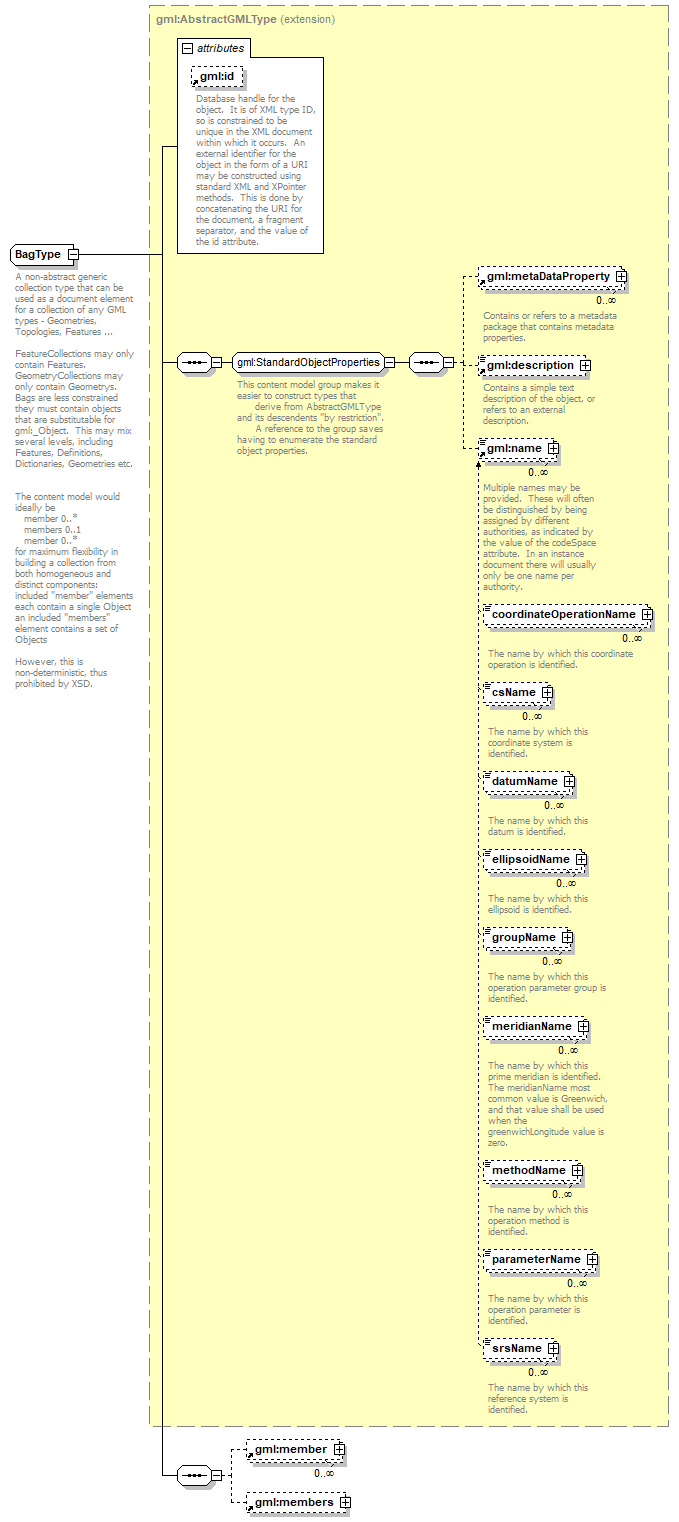| diagram |  |
||||||||||||||
| namespace | http://www.opengis.net/gml | ||||||||||||||
| type | extension of gml:AbstractGMLType | ||||||||||||||
| properties |
|
||||||||||||||
| children | gml:metaDataProperty gml:description gml:name gml:member gml:members | ||||||||||||||
| used by |
|
||||||||||||||
| attributes |
|
||||||||||||||
| annotation |
|
||||||||||||||
| source | <xs:complexType name="BagType"> <xs:annotation> <xs:documentation>A non-abstract generic collection type that can be used as a document element for a collection of any GML types - Geometries, Topologies, Features ... FeatureCollections may only contain Features. GeometryCollections may only contain Geometrys. Bags are less constrained they must contain objects that are substitutable for gml:_Object. This may mix several levels, including Features, Definitions, Dictionaries, Geometries etc. The content model would ideally be member 0..* members 0..1 member 0..* for maximum flexibility in building a collection from both homogeneous and distinct components: included "member" elements each contain a single Object an included "members" element contains a set of Objects However, this is non-deterministic, thus prohibited by XSD.</xs:documentation> </xs:annotation> <xs:complexContent> <xs:extension base="gml:AbstractGMLType"> <xs:sequence> <xs:element ref="gml:member" minOccurs="0" maxOccurs="unbounded"/> <xs:element ref="gml:members" minOccurs="0"/> </xs:sequence> </xs:extension> </xs:complexContent> </xs:complexType> |
XML Schema documentation generated by XMLSpy Schema Editor http://www.altova.com/xmlspy